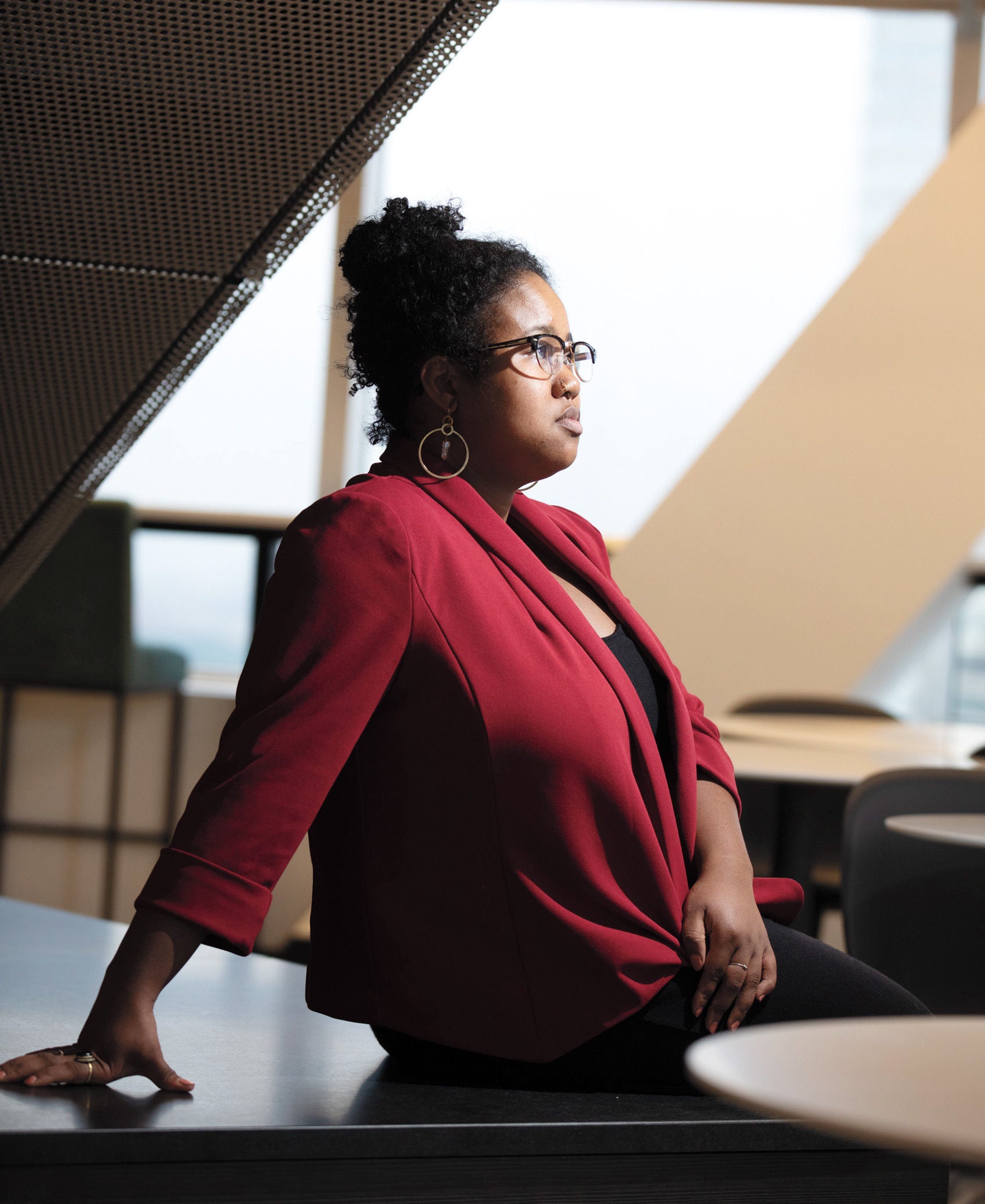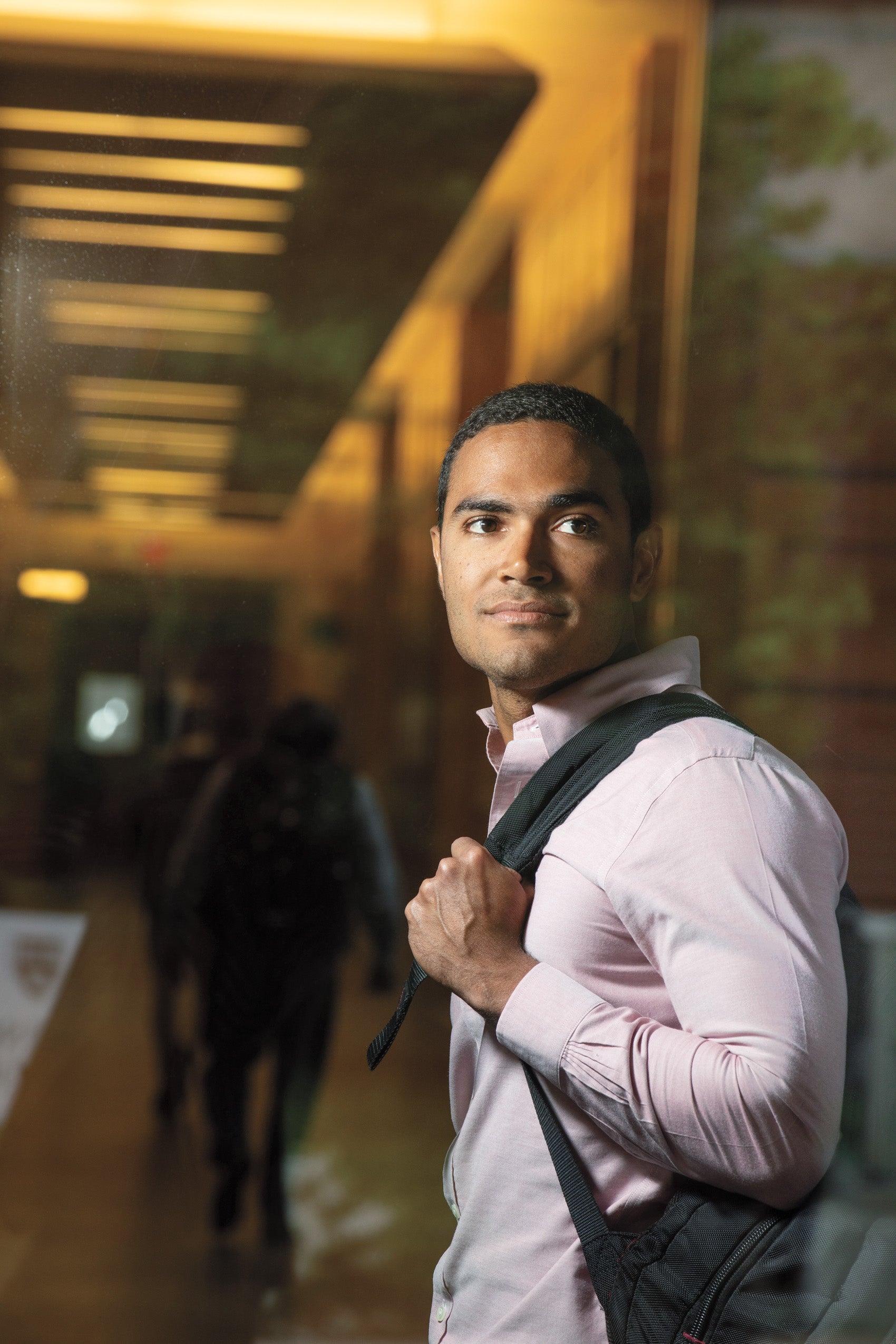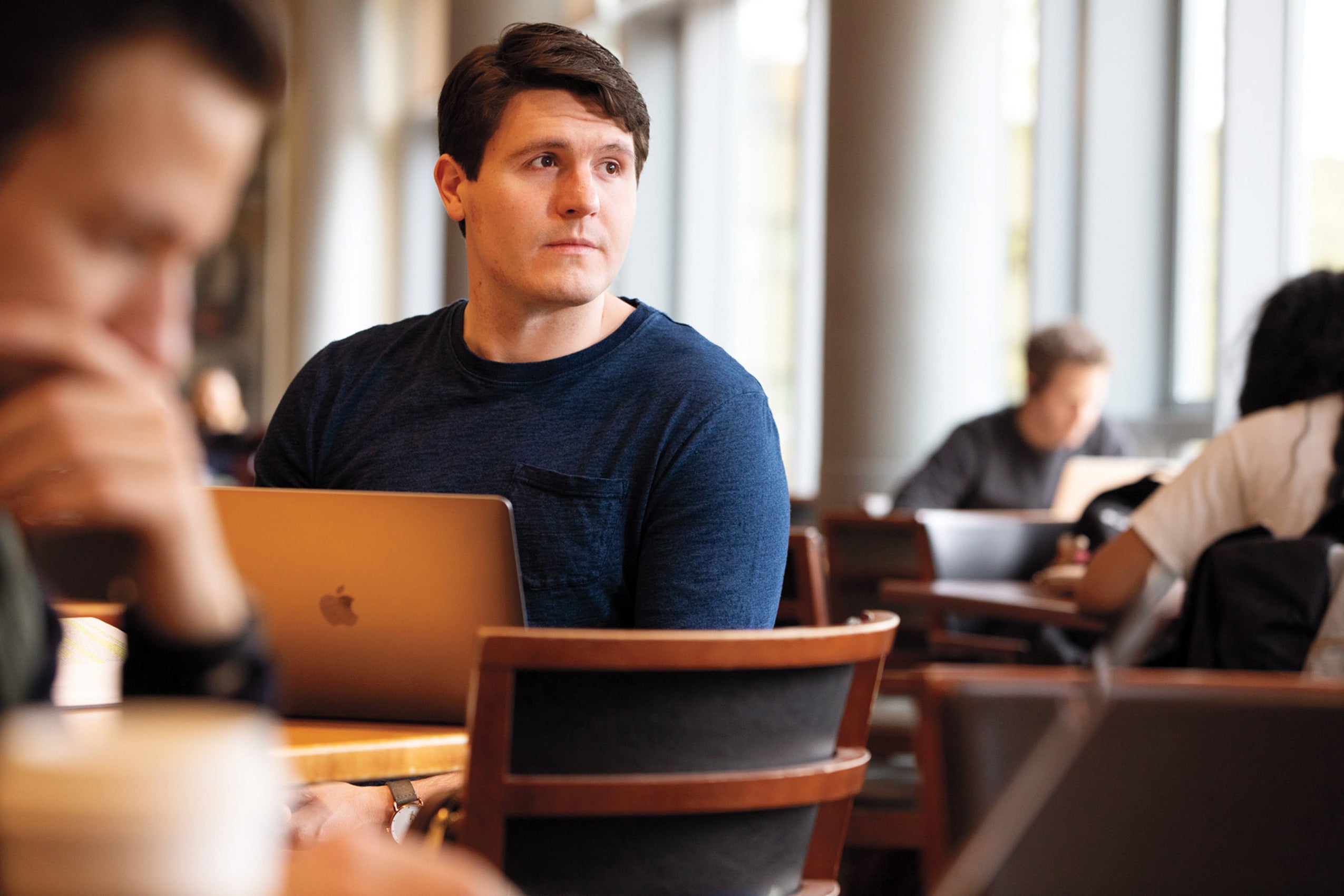First-year law student Mara Chin Loy didn’t follow a traditional path to Harvard. The first person in her family to go to law school, she majored in human biology and minored in Italian at Stanford. Though her job as a domestic violence program associate with the Center for Court Innovation in New York City familiarized her with some aspects of the legal system, she didn’t know quite what to expect when she was accepted to HLS.
“I was not very familiar with law school as a process,” she recalls. But by the time she arrived on campus, she felt well-prepared for her first semester. That’s because she—along with all other first-year J.D. students and all LL.M. students—participated in Zero-L, a new, 10-hour online course featuring a dazzling array of Harvard Law School professors. Zero-L provides a grounding in things like the separation of powers, the basics of American constitutional law and the stages of civil litigation. It also covers how to read a case and explains the Socratic method, offering tips on how to speak in class in response to a cold call.
“I thought it was really helpful for preparing me,” says Chin Loy. “I felt I was able to fully focus my time on learning the material in my class, as opposed to spending a few weeks trying to figure out what was even going on.”
Zero-L is meant to help all incoming students, including those who don’t have any pre-law background.
Zero-L, an initiative started under HLS Dean John F. Manning ’85, is meant to ensure that all incoming students, whatever their backgrounds and previous areas of study, start with the foundational knowledge that will enable them to thrive at HLS.
Andy Boes ’21 majored in political science and economics at the University of Notre Dame, but he doesn’t come from a family of lawyers. “I didn’t have a lot of exposure to the legal world, other than the tangential academic exposure that you get through political science,” says Boes. Zero-L’s lessons gave him “a good foundation,” he says. “It made me feel a little bit more comfortable going into my classes.”
As a refresher, Boes rewatched Zero-L’s lessons on how to brief a case and the American court system’s structure during his first semester. “Learning the structure of our court system in a little more detail was probably the most practically helpful in how it served me in my coursework,” he says. “We focused on some of it in the Legislation and Regulation course that all first-years take.”
Many of Boes’ fellow students appreciated the Zero-L segments on the Socratic method and responding to cold calls, he says, such as a mock class in which current HLS students take questions from a professor. “I think it was helpful in giving us a baseline understanding of what it looked like in practice,” he says.

The Zero-L courses are designed to help prepare all incoming students, including those like Boes and Chin Loy, who don’t have pre-law backgrounds and didn’t learn about the law at the family dinner table. Manning himself was one of those students 37 years ago.
“Zero-L was partly inspired by my own experience as a law student,” says Manning, who was the first in his family to graduate from college and the first to go to law school. “When I arrived at HLS, I felt completely clueless about a lot of things. I didn’t know what the common law was, or the differences between state and federal courts. We launched Zero-L to give our incoming students a common baseline of knowledge about the American legal system and about the vocabulary of law.”
Zero-L is also helping to demystify law school for an increasingly diverse student body. “Our student body comes from many different backgrounds, and from all over the world,” says Manning. About one in six come from STEM backgrounds—science, technology, engineering and mathematics. About one-quarter of students arrive with four or more years of post-college work experience. About one in six J.D. students are international students.
In late 2017, a few months after Manning took over as dean, he appointed a committee to develop Zero-L. Professor I. Glenn Cohen ’03, who teaches Civil Procedure to incoming 1Ls every fall and had developed an online bioethics course through the HarvardX online-learning initiative, played a key role in the committee’s work, along with Jessica Soban ’07, associate dean for strategic initiatives and admissions. “The idea was to come up with a curriculum that hits the sweet spot,” Cohen says, providing a helpful introduction to law for some students and a useful refresher for others.
After a series of focus groups and interviews with a range of students, the committee developed 10 hours of lively video lessons from HLS professors, along with multiple-choice questions. “What is law?” Cohen asks at the start of his own video. “It may seem like a really silly question! I mean, don’t we all know what law is? The answer may be trickier than you think.”
In a video demystifying the Socratic method, Professor Jeannie Suk Gersen ’02 tells Cohen how she overcame her own trepidation about speaking in class as a law student. “The idea of public speaking was absolutely my biggest nightmare,” she says. “The fact that it was required as a part of my education at Harvard was the biggest gift that I could’ve received for preparation for my professional life.”

Lecturer on Law Susan Davies, at the start of her presentation on how a bill becomes a law, sings a few lines of the 1976 song “I’m Just a Bill” from ABC’s “Schoolhouse Rock!” series before taking participants through the 10 basic steps of how federal legislation is made. In his segment, Professor Noah Feldman delivers a compelling lecture on the history of the Constitution, hitting some of the high points from the Constitutional Convention through the Civil War and Reconstruction to the civil rights movement in just 22 minutes. “In my opinion, Constitutional Law is the most fun, and in many ways the most important, course that you’ll take in law school,” says Feldman. “In the United States, as the French traveler Alexis de Tocqueville noted already in the 19th century, every major topic has a tendency to become a question of the Constitution.”
To gather feedback on the course while it was under development, HLS shared it with students from the Board of Student Advisers, who serve as peer advisers to 1Ls and as teaching assistants in the First-Year Legal Research and Writing Program. By early August, the school rolled out Zero-L for all incoming 1L and LL.M. students.
“It was a good intro to Harvard Law,” says Gonzalo Robles LL.M. ’19, a lawyer from Panama who practiced in mergers and acquisitions and finance before coming to HLS. “We got to see professors before we even went to Harvard. So, we now see familiar faces in the halls.”
Robles says some of Zero-L’s lessons helped him make the transition from Latin American and European civil law to American common law. Zero-L’s module on the Socratic method was new to Robles, since his law school classes in Panama were lecture-based. And Zero-L’s review of American constitutional law helped him understand key concepts in U.S. Supreme Court jurisprudence, such as the slippery slope argument and the institutional competence argument. “If I had not taken Zero-L, I would have been lost in class,” Robles says.
Students have described themselves as feeling excited and prepared after taking Zero-L. “Students told me, ‘I don’t know how I would survive 1L without this,’ ‘This was a huge confidence booster,’ and ‘This really gave me a sense of what it’s like to be at law school,’” says Cohen. Completion rates for Zero-L were high, says Manning, and the module on how to read a case, taught by Cohen, proved one of the most popular.
“Letting students know they have the tools to succeed helps prime them for success.”
—Dean John F. Manning ’85
HLS is preparing an updated version of Zero-L for this year’s incoming class. Just as the school relied on extensive student input in developing the original version, it is using feedback from follow-up surveys and focus groups as well as course usage patterns—analyzed in partnership with the Harvard Office of the Vice Provost for Advances in Learning—to help shape the enhanced course.
Plans include new modules by Professors Annette Gordon-Reed ’84 on legal history and Holger Spamann S.J.D. ’09 on law and economics, as well as an introduction to the criminal justice system and a module on the sociology of the legal profession. According to Cohen, the course may differentiate between “core” and “enrichment” lessons, expanding the total number of hours but keeping the core lessons close to 10 hours.
“Giving students this foundational knowledge so that everyone starts with a common baseline is important in and of itself,” says Manning. “But letting students know they have the tools to succeed also helps prime them for success.”
